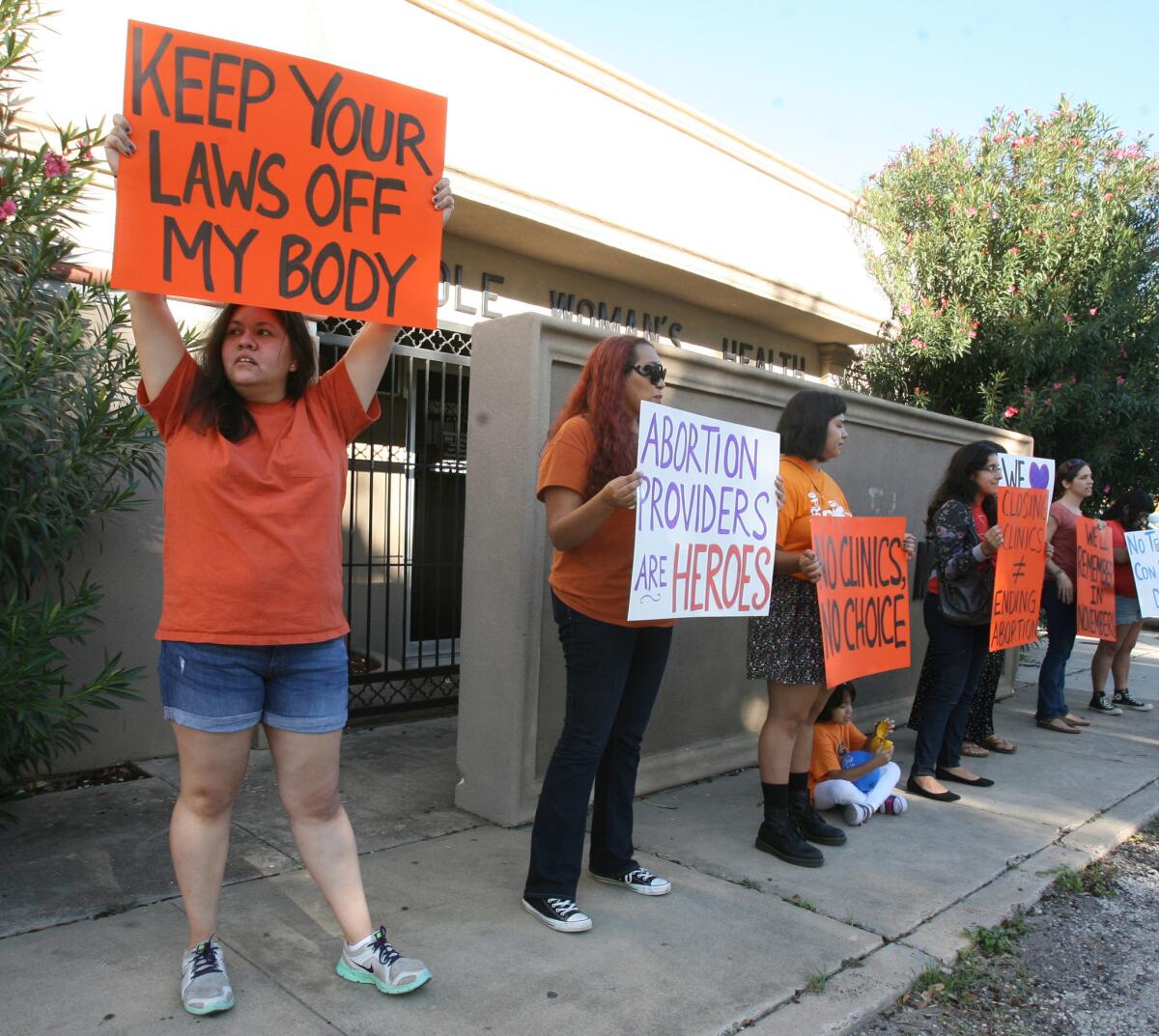Editorial: Supreme Court should put a stop to the relentless attacks on abortion

- Share via
In 1973, the Supreme Court held in Roe vs. Wade that women have a fundamental, constitutional right to an abortion, as long as that right is balanced against the state’s interest in protecting prenatal life and a woman’s health. In 1992, a second decision held that although the government could put some reasonable restrictions on abortion, it could not place an “undue burden” on a woman’s right to choose. And yet many of the 230 restrictive laws enacted in 30 states since 2011 have been specifically designed to circumvent those two rulings.
Some of those laws require clinics to be equipped to the standards of ambulatory surgical centers, and doctors who perform abortions to have admitting privileges at hospitals, despite the fact that there is no medical reason for either rule. Others require that women submit to counseling, often designed to discourage abortion, then wait a day or longer before undergoing the procedure. Some laws make a woman get an ultrasound of the fetus — and look at it — while others require parental consent before a minor can have an abortion. Often, these laws arrive cloaked in encomiums about protecting women’s health, when in fact they are intended to do one thing only: to make it more difficult, and in some cases almost impossible, to get an abortion.
Consider Texas, where one of the most onerous antiabortion laws is going into effect. Initially, abortion rights advocates sued to block a portion of the law that would have required abortion providers to have admitting privileges at nearby hospitals. In October 2013, U.S. District Judge Lee Yeakel ruled in their favor. In March of this year, a three-judge panel of the U.S. 5th Circuit Court of Appeals overturned Yeakel’s decision. Abortion rights advocates asked the full court to reconsider the matter. Last week, the court declined to do so.
Meanwhile, in a separate lawsuit, a group of abortion providers fought the part of the Texas law requiring abortion clinics to meet the standards of ambulatory surgical centers. Yeakel struck down that provision in August. He said that closing the clinics that couldn’t meet those standards would leave women in some parts of Texas as much as 200 miles from the nearest abortion provider. What’s more, he said that all evidence indicated abortion was already “extremely safe” in Texas and that the ambulatory surgical requirements were unnecessary.
But once again, a federal appellate court panel overruled him, immediately shutting down 13 abortion clinics, leaving only eight in operation in the entire state. On Tuesday, the Supreme Court ruled that the clinics could reopen while appeals proceed.
These relentless attacks on abortion are destined to continue until the Supreme Court steps in and rules definitively. It should take up these challenges to its authority and put a stop to this growing patchwork of bad, restrictive laws.
Follow the Opinion section on Twitter @latimesopinion
More to Read
A cure for the common opinion
Get thought-provoking perspectives with our weekly newsletter.
You may occasionally receive promotional content from the Los Angeles Times.






